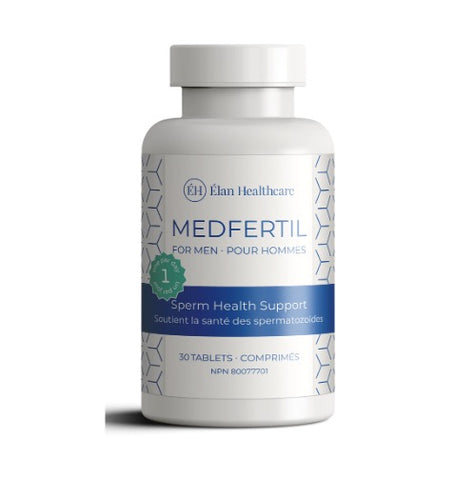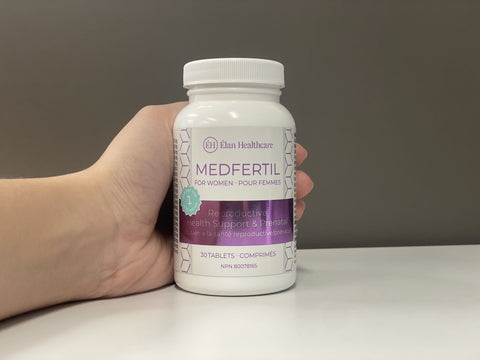Table of contents
Fertility is a deeply personal journey, and for many, optimizing it feels like a daunting process. While medical advancements have provided various options, there are also natural ways to support your body and enhance your chances of conceiving. We get asked a lot on how one can improve their fertility naturally, so we put together a guide to some tried-and-true methods that might help you on this journey.
1. Adopt a Balanced Diet
- What you eat plays a significant role in regulating your hormones and improving reproductive health. Remember the old saying “garbage in, garbage out”
- Focus on:
- Fruits and Vegetables: Rich in antioxidants that protect reproductive cells from damage.
- Healthy Fats: Incorporate sources like avocados, nuts, seeds, and olive oil to support hormone production.
- Protein Variety: Combine plant-based proteins like beans and lentils with moderate amounts of lean animal proteins.
- Whole Grains: Avoid refined carbs and choose options like quinoa, oats, and brown rice to keep blood sugar levels stable.
2. Maintain a Healthy Weight
Both underweight and overweight individuals can experience disruptions in ovulation. Aim for a balanced weight through:
- Regular physical activity like pilates, walking, running or swimming.
- Avoiding crash diets and focusing on sustainable eating habits.
3. Reduce Stress
Chronic stress can negatively impact fertility by interfering with hormone regulation. Manage stress through:
- Mindfulness Practices: Meditation, deep breathing, or journaling.
- Therapeutic Activities: Hobbies like gardening, painting, or dancing.
- Professional Help: Don’t hesitate to seek counseling if needed.
4. Monitor Your Cycle
Understanding your menstrual cycle is key to identifying your most fertile days.
- Use ovulation tracking tools like basal body temperature charts or ovulation predictor kits.
- Apps can also help you log and analyze your cycle patterns.
- Smart underwear like Fibra that helps you track your fertility and ovulation data.
5. Consider Natural Supplements
Certain vitamins and minerals are essential for reproductive health. Ensure that you’re not lacking any of these:
-
Vitamin D: Low levels of vitamin D can affect fertility in both men and women. Vitamin D is produced in the skin when exposed to sunlight, but it can also be consumed through food and supplements. Oily fish such as salmon, mackerel, and sardines are high in Vitamin D.
- Folic acid: Also known as vitamin B9, folic acid is important for DNA synthesis and cell division. A deficiency in folic acid can increase the risk of miscarriage and may cause ovulatory infertility in women. Focus on leafy greens such as spinach, kale, cabbage to load up on this mineral.
- Vitamin B12: A deficiency in vitamin B12 can affect sperm production and quality in men, and may also affect fertility in women. Animal products like poultry, dairy, and meat are rich in vitamin B12.
- Vitamin C: This is an antioxidant that plays a role in sperm health, a deficiency in vitamin C can lead to sperm damage. Citrus fruits like oranges, clementines, are your go-to here.
- Vitamin E: An antioxidant that helps protect sperm from oxidative damage, a deficiency in vitamin E may lead to decreased sperm quality and fertility issues in men.
- Vitamin A: Essential for reproductive health in both men and women, a deficiency in vitamin A may disrupt the production of sex hormones and impair sperm and egg development.
- Iodine: The thyroid uses iodine to produce thyroid hormone, which is needed for the baby's brain development.
- Omega-3 fatty acids: Supports hormone regulation and improves blood circulation to reproductive organs.
- Folic Acid: Supports early fetal development and prevents birth defects.
- Zinc: Important for egg and sperm health.
- Omega-3 Fatty Acids: Found in fish, nuts and seeds, plant oil, they enhance overall reproductive health.
- Iron: A study found that low iron levels have been linked to unexplained infertility in women. Focus on iron-rich foods like meat and poultry, beans, nuts and seeds.
Above all, always consult your healthcare provider before starting any supplement.
6. Limit Exposure to Toxins
Everyday toxins can interfere with your reproductive hormones. To reduce exposure:
- Choose organic produce when possible.
- Avoid plastics containing BPA and never heat up food in the microwave using plastic containers.
- Use natural cleaning and beauty products.
7. Quit Smoking and Limit Alcohol
Both smoking and excessive alcohol consumption can negatively impact fertility in men and women. If you’re trying to conceive:
- Quit smoking entirely.
- Limit alcohol intake to occasional and moderate use.
8. Get Enough Sleep
Your body needs time to reset and regulate hormones. Lack of sleep can disrupt this process, so aim for 7-8 hours of quality rest each night.
9. Seek Support from Nature
Certain herbs are traditionally used to support fertility, such as:
- Maca Root: Known to balance hormones and boost libido.
- Chasteberry (Vitex): Helps regulate the menstrual cycle.
- Ashwagandha: Supports stress management and overall hormone health.
- Speak with a naturopath or healthcare provider before adding herbal remedies to your routine.
10. Involve Your Partner
Fertility is a two-person journey. Encourage your partner to:
- Maintain a balanced diet and healthy weight, same as yourself.
-
Attend fertility appointments, do your research together, and share how they feel.
Fertility journeys are as unique as the individuals experiencing them. While these natural methods can provide significant support, they work best as part of a holistic approach that includes medical guidance where necessary. Check-in with a healthcare professional for more tailored advice. And remember, patience and consistency are key, don’t be too hard on yourself.







No comments yet.
There are no comments for this article. Be the first one to leave a message!
+ Open to leave a Comment